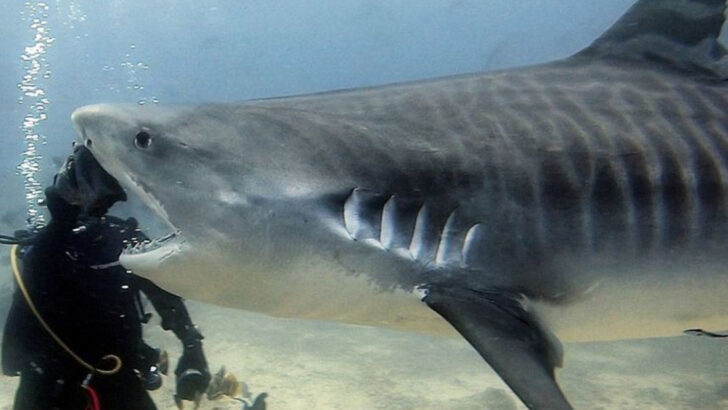Shark attacks are terrifying, but some places seem to attract more of these terrifying encounters than others. With every splash in the ocean, the fear of a sudden attack lingers.
This isn’t just about curiosity—it’s about survival. In certain countries, shark attacks are more frequent, and sometimes, more deadly. So why do these places see such a high rate of incidents? What makes their waters a hotspot for these powerful predators?
From Australia’s infamous coastlines to Florida’s shark-heavy beaches, we’ll take you on a journey through the world’s deadliest waters. Whether you’re a thrill-seeker or just fascinated by nature’s raw power, these facts will have you second-guessing your next swim.
Get ready to discover the top 21 countries with the most fatal shark attacks—and the jaw-dropping details behind each of them.
Australia

Australia is renowned for its diverse marine life, including the presence of formidable sharks. With its extensive coastline, the country experiences a significant number of shark attacks annually.
Australian beaches, although breathtaking, have been sites of unfortunate encounters. The Great Barrier Reef and other coastal areas are frequented by tourists and locals alike, making interactions with sharks more likely.
Authorities constantly work to balance conservation efforts with safety measures, such as shark nets and aerial patrols. Despite the risks, Australia’s waters continue to attract adventurers and marine life enthusiasts from around the globe.
United States
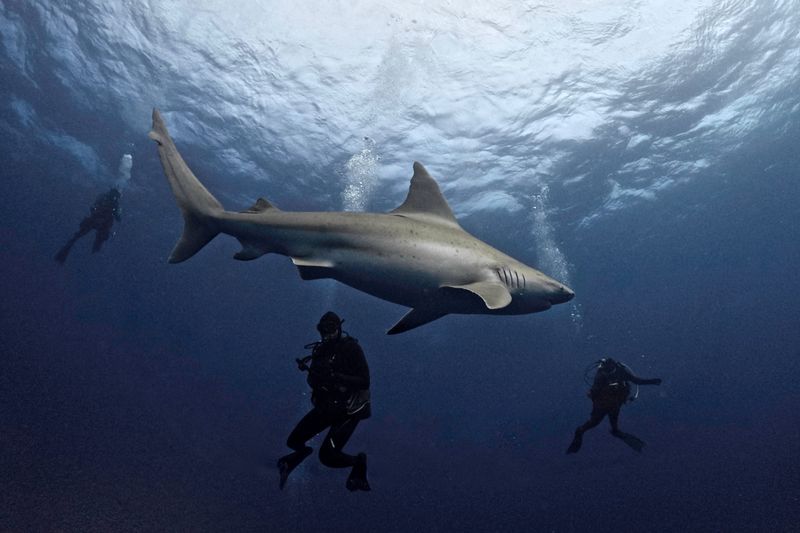
The United States, particularly Florida and California, sees numerous shark attacks each year. These regions are popular for surfing, swimming, and other water sports, contributing to frequent human-shark interactions.
The warm waters of the Atlantic and Pacific Oceans provide ideal habitats for various shark species. Education and awareness campaigns aim to inform the public about shark behavior and safe practices.
Despite the occasional attack, these beaches remain popular destinations for tourists seeking sun and surf. The country’s commitment to research and safety strategies helps reduce the risks associated with these encounters.
South Africa

South Africa’s coastline is famous for its rich marine biodiversity and regular shark sightings. Particularly, the waters around Cape Town and KwaZulu-Natal are known for the presence of Great White Sharks.
Cage diving is a popular activity, allowing tourists a close encounter with these majestic creatures. However, the same waters have witnessed several fatal attacks over the years.
The government and local communities have implemented measures like shark spotters and exclusion nets to protect both sharks and swimmers. Despite the risks, these efforts reflect a commitment to coexistence and respect for marine life.
Brazil

Brazil’s northeastern beaches, like those in Recife, are known for their picturesque views and, unfortunately, shark attacks. The unique geography and warm waters attract both sharks and beachgoers.
Factors like urbanization and fishing practices have altered shark behavior, leading to more frequent interactions. Authorities have taken steps to improve safety, including deploying shark nets and increasing surveillance.
Public awareness campaigns educate locals and tourists on safety measures. While the beauty of these beaches is undeniable, understanding and respecting the marine environment is crucial for reducing the likelihood of encounters.
Bahamas
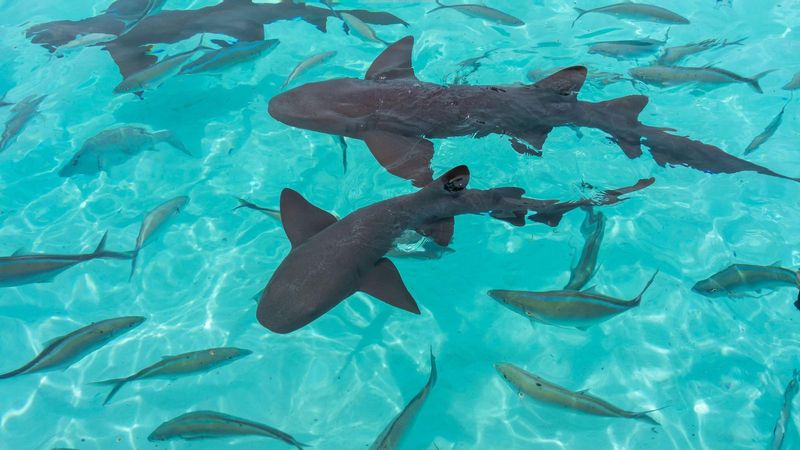
The Bahamas, with its clear turquoise waters, is a paradise for divers and snorkelers. However, the region is not without its risks, as several shark attacks have been recorded.
The warm, inviting waters are home to a variety of shark species, including the Caribbean Reef Shark. Tourism plays a significant role in the economy, and safety measures are in place to protect visitors.
Shark encounters, although rare, are taken seriously, with guidelines provided to minimize risks. The allure of the Bahamas remains strong, with its stunning marine life continuing to draw adventurers from all over.
New Zealand

New Zealand’s rugged coastlines are known for their stunning beauty and diverse wildlife, including sharks. The country has recorded several fatal shark attacks over the years, drawing attention to its unique marine environment.
Surfing and swimming are popular activities, increasing the chances of encounters. New Zealand authorities focus on education and awareness to promote safe practices among beachgoers.
Despite the inherent risks, the allure of New Zealand’s natural beauty and adventurous spirit continues to attract visitors. The balance between enjoying the ocean and respecting its inhabitants is a vital part of the kiwi lifestyle.
Mexico

Mexico’s extensive coastlines, particularly along the Pacific, have been sites of shark encounters. The country’s warm waters are home to various shark species, attracting both marine enthusiasts and beachgoers.
Several attacks have been documented, prompting increased safety measures and public education campaigns. Mexico’s commitment to marine conservation and research contributes to a deeper understanding of these creatures.
Despite the incidents, the country’s beaches remain popular for their stunning beauty and cultural richness. Visitors are encouraged to adhere to local guidelines to ensure a safe and enjoyable experience in these waters.
Papua New Guinea
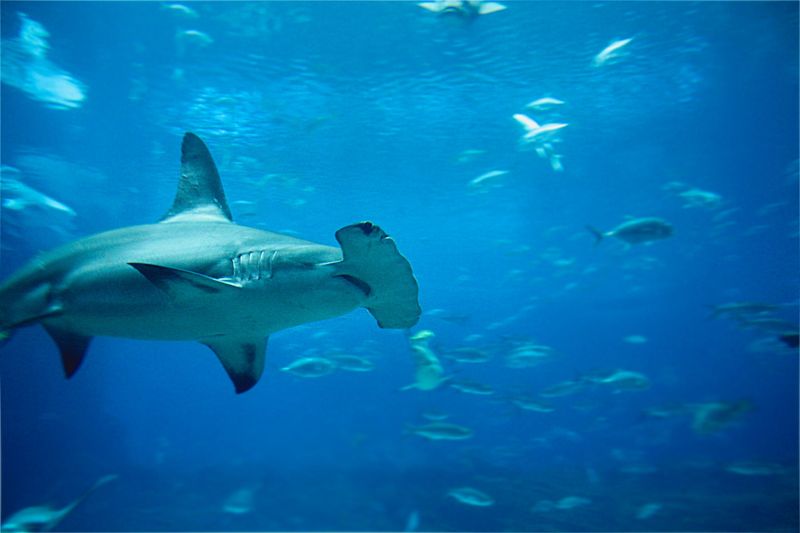
Papua New Guinea, with its pristine and remote beaches, is known for its exceptional marine biodiversity. However, this has also led to occasional shark attacks, as the waters are teeming with various shark species.
The traditional lifestyles of many coastal communities involve fishing and subsistence activities, increasing the likelihood of encounters. Efforts to educate locals and visitors about safe practices are ongoing, aiming to reduce risks.
Despite the dangers, Papua New Guinea’s rich marine ecosystem remains a significant draw for divers and researchers seeking to explore its untouched beauty.
Reunion Island
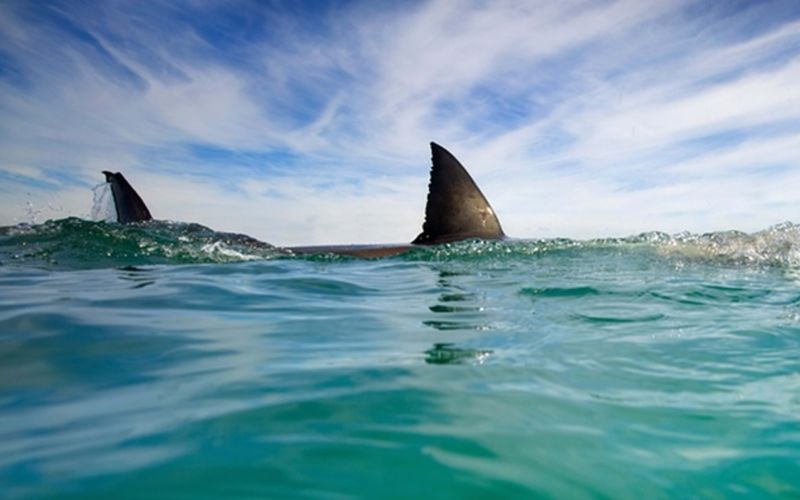
Reunion Island, a French territory in the Indian Ocean, has gained notoriety for its shark attacks. The island’s unique geographical features and warm waters create an ideal environment for sharks.
Over the years, several fatal attacks have been reported, leading to increased safety measures such as shark nets and surveillance drones. The local government works tirelessly to protect both residents and tourists while respecting marine life.
Despite these challenges, Reunion Island continues to captivate visitors with its stunning landscapes and vibrant culture. Awareness and caution are key to enjoying this tropical paradise safely.
Sri Lanka

Sri Lanka, with its beautiful beaches and rich marine life, has experienced its share of shark attacks. The island’s warm waters attract both tourists and various shark species.
Local fishing practices and tourism activities increase interactions between humans and sharks. Efforts to educate visitors about safe swimming areas and behaviors are ongoing. Despite the risks, Sri Lanka’s beaches remain popular for their natural beauty and cultural significance.
The country’s dedication to conservation and safety measures ensures that both locals and tourists can enjoy the ocean while minimizing the potential for dangerous encounters.
Egypt

Egypt’s Red Sea coastline is renowned for its stunning coral reefs and diverse marine life, including sharks. The area has witnessed several shark attacks, particularly in popular tourist destinations like Sharm El Sheikh.
The warm waters and abundant marine resources attract both sharks and visitors. Authorities have implemented safety measures, such as designated swimming zones and increased surveillance, to protect swimmers.
Public awareness campaigns encourage safe practices and respect for the marine environment. Despite the incidents, the Red Sea’s allure as a diving and snorkeling paradise remains strong, drawing enthusiasts from around the world.
Fiji
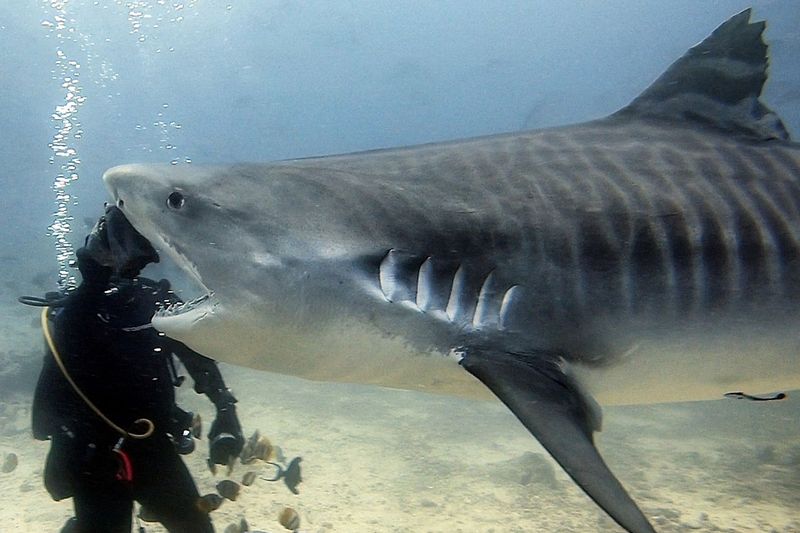
Fiji’s idyllic islands are surrounded by vibrant coral reefs, making them a haven for marine life, including sharks. While shark attacks are rare, they do occur, reminding visitors of the ocean’s unpredictability.
The Fijian government and local communities emphasize safety and awareness to prevent incidents. Tourists are advised to follow guidelines and respect the natural habitat.
Despite the occasional encounter, Fiji’s reputation as a tropical paradise remains intact, with its rich culture and breathtaking landscapes continuing to attract travelers seeking adventure and relaxation in equal measure.
Japan

Japan’s extensive coastlines are home to diverse marine life, including several shark species. Although relatively rare, shark attacks have been recorded, particularly in areas popular for swimming and water sports.
Japanese authorities focus on education and research to understand shark behavior and promote safety. The country’s commitment to marine conservation contributes to a balanced coexistence with these creatures.
Visitors are encouraged to adhere to safety guidelines and respect local customs while enjoying Japan’s beautiful beaches. The nation’s harmonious relationship with nature remains a cornerstone of its cultural identity.
Indonesia

Indonesia, with its thousands of islands and rich marine biodiversity, sees occasional shark attacks. The country’s warm, tropical waters attract both sharks and tourists.
Efforts to balance marine conservation with tourism are ongoing, with authorities focusing on education and awareness. Despite the risks, Indonesia’s beaches and coral reefs continue to be major attractions, offering unparalleled beauty and adventure.
Visitors are advised to follow local guidelines and respect the environment, ensuring a safe and enjoyable experience. The nation’s cultural diversity and natural wonders make it a unique destination for travelers worldwide.
Thailand

Thailand’s stunning beaches and rich marine life make it a popular destination for tourists, but shark attacks have occurred. The warm waters are home to various shark species, increasing the likelihood of encounters.
Local authorities prioritize safety, implementing measures such as designated swimming areas and public education campaigns. Visitors are encouraged to be mindful of the ocean’s potential hazards while enjoying its beauty.
Despite the dangers, Thailand’s natural charm and vibrant culture continue to draw travelers seeking an exotic and memorable experience. Respect for the marine environment is key to a safe visit.
Philippines

The Philippines, with its vast coastline and rich marine biodiversity, occasionally experiences shark attacks. The warm, tropical waters attract both marine enthusiasts and various shark species.
Public awareness and education campaigns are in place to promote safe practices among locals and tourists. Despite the potential risks, the country’s beaches remain popular destinations, offering stunning beauty and cultural richness.
Visitors are encouraged to adhere to safety guidelines and respect the environment. The Philippines’ commitment to marine conservation ensures a harmonious coexistence with ocean life, making it a beloved destination for travelers.
Spain

Spain’s beautiful beaches, particularly along the Mediterranean, see millions of visitors each year. While shark attacks are rare, they have occurred, prompting safety measures and public awareness campaigns.
The warm waters attract various marine species, including sharks, making safety a priority for local authorities. Tourists are encouraged to adhere to guidelines and respect the ocean’s natural inhabitants.
Despite the risks, Spain’s beaches remain a top destination for their stunning beauty, cultural richness, and vibrant atmosphere. The country’s dedication to safety and conservation ensures a welcoming environment for all visitors.
Italy

Italy’s renowned coastlines, particularly along the Tyrrhenian Sea, offer breathtaking views and rich marine life. Although shark attacks are infrequent, they have been reported, reminding visitors of the ocean’s unpredictability.
Italian authorities focus on safety and awareness, promoting guidelines to ensure a secure beach experience. The country’s commitment to marine conservation and education is evident in its approach to managing human-shark interactions.
Despite the potential dangers, Italy’s beaches remain beloved for their beauty and cultural significance, attracting tourists from around the globe. A respectful approach to nature enhances the enjoyment of these stunning locations.
Venezuela

Venezuela’s Caribbean coast, with its warm waters and picturesque beaches, sees occasional shark attacks. The country’s commitment to marine conservation and public safety is evident through education and awareness campaigns.
Local authorities prioritize safe practices to protect both locals and tourists. Despite the risks, Venezuela’s beaches remain popular for their stunning beauty and vibrant culture.
Visitors are encouraged to follow guidelines and respect the ocean’s natural inhabitants. The nation’s dedication to preserving its rich marine biodiversity ensures a safe and enjoyable experience for all who visit these captivating shores.
Ghana

Ghana’s Atlantic coastline is not only a hub for vibrant culture and history but also home to marine wildlife, including sharks. While shark attacks are not common, fatal incidents have occurred, creating a need for awareness among beachgoers.
Ghana’s approach to shark safety involves community engagement and education, aiming to protect both locals and tourists. The nation’s beaches offer a captivating experience, blending leisure with caution for those exploring its coastal waters.
Madagascar
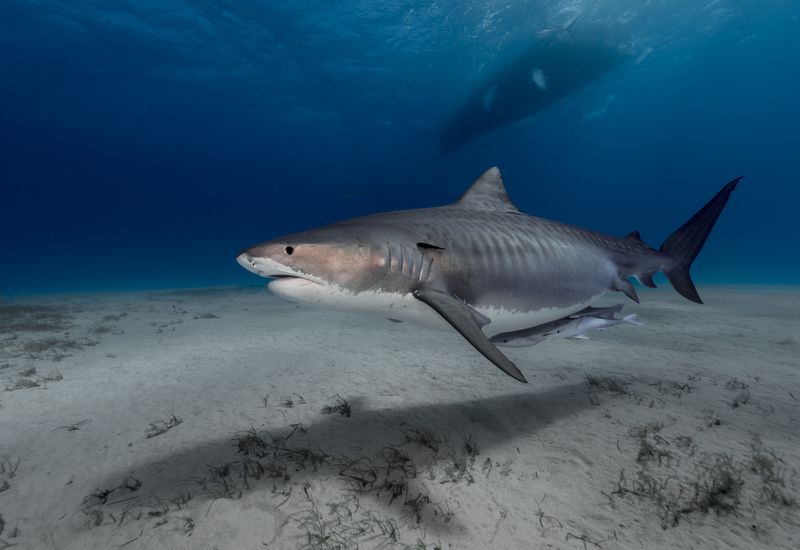
Madagascar’s location in the Indian Ocean makes it a place of rich biodiversity, including a variety of shark species. The island’s vibrant marine environment, combined with active fishing communities, occasionally leads to dangerous shark encounters.
Though rare, shark attacks in Madagascar have prompted initiatives to enhance beach safety and educate both locals and visitors. The blend of extraordinary wildlife and cultural richness makes Madagascar an intriguing yet cautious destination for ocean lovers.

